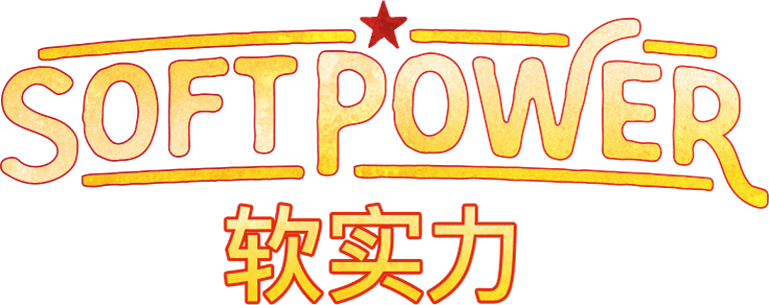‘Soft Power’: The Show, The Theory, The Inspiration
David Henry Hwang and Jeanine Tesori's New Political Fantasy Draws on Drama from the World Stage

As the self-described only even nominally Chinese person who’s ever written a Broadway show,
Chinese American playwright David Henry Hwang has gone on quite a few meetings with Chinese entertainment producers who want to create a Broadway show of their own. Why are they interested? Two words that also happen to be the title of Hwang and Jeanine Tesori’s new play with a musical, onstage at the Ahmanson Theatre May 3 – June 10, 2018: Soft Power.
China has been making a concerted effort in the last decade to create a more robust entertainment industry as part of a larger initiative to increase its global influence, or, as President Xi Xinping elaborated in 2014, increase China’s soft power, give a good Chinese narrative, and better communicate China’s messages to the world.
The idea of soft power
was first coined by renowned political scientist and international relations scholar Joseph S. Nye in his 1990 book Bound to Lead: The Changing Nature of American Power. Nye wanted to distinguish between well-established direct or coercive means that countries use to achieve their interests—dubbed hard power
—versus more indirect ways countries work to passively align others’ interests with their own. Soft power is getting others to want the outcome that you want,
wrote Nye.
Say you and your coworkers take turns choosing where to grab drinks after work every Friday, and the coworker in charge this week has chosen a place you don’t like. A straightforward use of hard power might be refusing to be the driver if they choose that bar, or offering to pick up the first round if you all go somewhere else. On the other hand, a soft power tactic would be forwarding a write-up about a new bar that just opened, convincing your coworker to change their pick.
Soft power is 'getting others to want the outcome that you want,' wrote Nye.
On an international level, hard power is exercised with economic sanctions, military action, and the like. Soft power is more nuanced. Take Cold War-era broadcaster Radio Free Europe. The station, though funded by the US government, was an independent organization focused on broadcasting uncensored, non-Soviet influenced news to Eastern Bloc countries. The dissemination of Western culture, ideologies, and world news helped build internal pressure within the Soviet Union that eventually led to reforms and the country’s dissolution.
But figuring out when and how soft power is effective, as well as quantifying how much soft power a country can bring to task, can be tricky. Nye elaborated in more recent writings that the basis of a country’s soft power isn’t some measurable metric, but comes from a combination of its political values, foreign policies, and culture, and how others value those resources. Additionally, the use of soft power relies on a good relationship between those involved, requiring not only a receptiveness to act on the target’s part, but also influence and persuasion on the actor’s part. Attraction and persuasion,
Nye explained, are socially constructed,
making measures of effectiveness inherently subjective.
Some of the aspects that make soft power difficult to track and measure also make it difficult to wield. Getting results using soft power means relying on the government you’re targeting to make the changes themselves, which can be slow and unreliable. Nye characterized soft power as hard to use, easy to lose, and costly to reestablish.
So considering all of this uncertainty, what makes soft power a desirable tool in world politics? It takes less effort (and often less money) than hard power tactics. And sometimes it can take little to no effort on the part of the government at all. Take for example the 2008 Olympics in Beijing…
In 2007, director Steven Spielberg sent an open letter to Chinese President Hu Jintao urging him to take action in the regional conflict engulfing the Darfur region of Sudan. China, one of Sudan’s strongest allies, had yet to take any significant political action toward mitigating the conflict. But after Spielberg—who had been brought in as a creative consultant on the opening and closing ceremonies of the Beijing Olympics—publicized his letter, China sent a high-level diplomat to Sudan to advocate bringing in United Nations peacekeepers.
Soft Power reminds us that America’s influence is inspirational, not confrontational.
Steven Spielberg wasn’t ordered by any governmental agent or organization to take action; he was just a private citizen expressing his interests. But within the frame of soft power politics, he is a de-facto ambassador of US culture; his movies have been watched by generations around the world. As a result he was able to incite action from China, action in line with US foreign diplomatic goals that official channels weren’t able to produce. These results, Nye noted, were the soft power fruits of labor of US policy.
Now, 10 years later, US approval ratings in international polls have dropped as China’s have risen, putting the two countries on par—which some scholars have interpreted as evidence of our decreased soft power. Still, Nye tempered their more dire outlooks by highlighting the separation of many soft power resources, such as our culture and non-governmental organizations, from the government itself.
But what if Nye is wrong? Hwang and Tesori look back on the legacy of the recent US political upheavals and a subsequent shift in the global balance of power from a Chinese perspective 100 years in the future. Soft Power reminds us that America’s influence is inspirational, not confrontational—that, when it comes to politics, the best won battles are the ones you don't have to fight.
